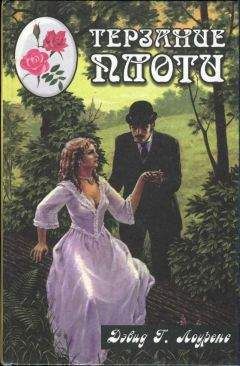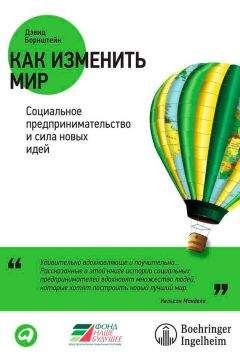Дэвид Пристланд - Красный флаг: история коммунизма
810
Molotov, Molotov Remembers, p. 334.
811
R. Janos, “The Development of Imre Nagy as a Politician and a Thinker”, in G. Peteri (ed.), Intellectual Life and the Crisis of State Socialism in East Central Europe, 1953—1956 (Trondheim, 2001), pp. 16—30.
812
S. Csoori, “Pamphlet”, цит. по G. Litvan (ed.), The Hungarian Revolution of 1956, Reform, Revolt and Repression, 1953—1963 (London, 1996), p. 29.
813
F. Lewis, The Polish Volcano. A Case History of Hope (London, 1959), P. 146.
814
Там же, с. 155.
815
Описание этого эпизода см. в Taubman, Khrushchev, p. 293.
816
М. Kramer, “New Evidence on Soviet Decision-Making and the 1956 Polish and Hungarian Crises”, Cold War International History Project [CWIHP] 8—9 (1996—7), p. 53.
817
M. Molnar, Budapest 1956 (London, 1971), p. 266.
818
Цит. по Litvan, Hungarian Revolution, p. 127.
819
S. Khrushchev, Khrushchev and the Creation of a Superpower (University Park, Pa, 2000), p. 188.
820
M. Kramer, “The «Malin Notes» on the Crises in Hungary and Poland, 1956”, CWIHP 8—9 (1996—7), pp. 392 ff.
821
V. Micunovic, Moscow Diary, trans. D. Floyd (Garden City, NY, 1980), pp. 133—4.
822
Litvan, Hungarian Revolution, p. 143—4.
823
E. Hobsbawm, Interesting Times. A Twentieth-Century Life (London, 2002), p. 205.
824
Цит. по D. Kertzer, Comrades and Christians. Religion and Political Struggle in Communist Italy (Cambridge, 1980), p. 148.
825
Там же, сс. 146—157.
826
К. Middlemas, Power and the Party. Changing Faces of Communism in Western Europe (London, 1980), p. 100.
827
S. Gundle, J comunisti italiani tra Hollywood e Mosca: la sfida della cultura di massa (1943—1991) (Florence, 1995), p. 252.
828
Taubman, Khrushchev, pp. 308—9.
829
D. Kozlov, “Naming the Social Evil. The Readers of Novyi mir and Vladimir Dudintsev’s Not by Bread Alone, 1956—59 and Beyond”, in Jones (ed.), The Dilemmas of Destalinization, pp. 80, 89.
830
V. Dudintsev, Not by Bread Alone, trans. E. Bone (London, 1957), P. 246. Русский текст цит. по В. Дудинцев. Не хлебом единым. М.: Советский писатель, 1957.
831
Там же, с. 438. Русский текст цит. по В. Дудинцев. Не хлебом единым.
832
Цит. по Thompson, Khrushchev, p. 238.
833
Z. Mlynar, Conversations with Gorbachev: On Perestroika, the Prague Spring, and the Crossroads of Socialism (New York, 2002), p. 36.
834
W. L. Hixson, Parting the Curtain. Propaganda, Culture and the Cold War, 1945—1961 (London, 1997), pp. 178—9.
835
L. Attwood, “Housing in the Khrushchev Era”, in M. Ilic et al. (eds.), Women in the Khrushchev Era (London, 2004), pp. 186—8.
836
Reid, The Exhibition “Art of Socialist Countries”, p. 103.
837
S. Reid, “Women in the Home”, in Ilic et al. (eds.), Women in the Khrushchev Era, p. 168.
838
D. Filtzer, Soviet Workers and De-Stalinization (Cambridge, 1992), pp. 232—3.
839
S. Baron, Bloody Sunday in the Soviet Union. Novocherkassk, 1962 (Stanford, 2001), pp. 26—7.
840
А. Микоян. Так было. Размышления о минувшем. М., 1999. С. 610.
841
L. Alexeyeva and P. Goldberg, The Thaw Generation. Coming of Age in the post-Stalin Era (Boston, 1990), pp. 95—7.
842
P. McMillan, Khrushchev and the Arts. The Politics of Soviet Culture, 1962. 1964 (Cambridge, Mass., 1965), pp. 101—5.
843
Описано в D. Volkogonov, Autopsy for an Empire. The Seven Leaders Who Built the Soviet Regime (New York, 1998), p. 236.
844
Wu Hung, Remaking Beijing: Tiananmen Square and the Creation of Political Space (London, 2005), pp. 108—30.
845
S. Schram, The Thought of Mao Tse-Tung (Cambridge, 1989), P. 154.
846
S. Schram (ed.), Mao Tse-tung Unrehearsed: Talks and Letters, 1956—71 (Harmondsworth, 1974), pp. 114—15.
847
S. Goncharenko, “Sino-Soviet Military Cooperation”, in О. Е. Westad (ed.), Brothers in Arms. The Rise and Fall of the Sino. Soviet Alliance 1945—63 (Stanford, 1998), p. 160.
848
Communist China. Policy Documents with Analysis (Cambridge, Mass., 1962), pp. 151—63.
849
Li Zhisui, The Private Life of Chairman Mao (London, 1994), p. 222.
850
J. Ch'en, Mao Papers: Anthology and Bibliography (New York, 1970), pp. 62—3.
851
D. Yang, Calamity and Reform in China. State, Rural Society, and Institutional Change since the Great Leap Famine (Stanford, 1996), p. 34
852
L. Zhang and C. Macleod (eds.), China Remembers (Oxford, 1999), p. 76.
853
S. Potter and J. Potter, Chinas Peasants. The Anthropology of a Revolution (Cambridge, 1990), p. 71.
854
Zhang and Macleod, China Remembers, p. 78.
855
Li, Private Life, pp. 277—8.
856
Там же, с. 302.
857
Цит. по Н. Harding, “The Chinese State in Crisis”, in R. Macfarquhar (ed.), The Politics of China. The Eras of Mao and Deng, 2nd edn (Cambridge, 1993), p. 234.
858
Decision of the Central Committee of the Chinese Communist Party Concerning the Great Proletarian Cultural Revolution (Beijing, 1966), p. 1.
859
Цит. по Harding, “Chinese State”, p. 169.
860
Gao Yuan, Born Red: a Chronicle of the Cultural Revolution (Stanford, 1987), pp. 86, 89—90.
861
Цит. по P. Clark, The Chinese Cultural Revolution. A History (Cambridge, 2008), p. 61.
862
Там же, с. 2.
863
A. Finnane, Changing Clothes in China. Fashion, History, Nation (London, 2007), p. 237.
864
О понятии «виртократии» см. S. Shirk, “The Decline of Virtuocracy in China”, in J. Watson (ed.), Class and Social Stratification in post-Revolution China (Cambridge, 1984).
865
Liu Guokai, A Brief Analysis of the Cultural Revolution, trans. A. Chan (Armonk, NY, 1987), p. 47.
866
J. Sheehan, Chinese Workers: A New History (London, 1998), pp. 123—4.
867
R. Madsen, Morality and Power in a Chinese Village (Berkeley and Los Angeles, 1984), pp. 180—98.
868
G. White, The Politics of Class and Class Origin: The Case of the Cultural Revolution, Contemporary China Papers, 9 (Canberra, 1976), p. 46.
869
Цит. там же, с. 37.
870
См. R. Kraus, Class Conflict in Chinese Socialism (New York, 1981), pp. 164—6.
871
Zhang and Macleod, China Remembers, p. 120.
872
Там же, сс. 120—121.
873
Цит. в R. Macfarquhar and M. Schoenhals, Mao’s Last Revolution (Cambridge, Mass., 2006), p. 199.
874
Там же, с. 155.
875
Там же, сс. 162—163.
876
Gao Yuan, Вот Red, pp. 179 ff.
877
Об этих примерах см. D. Leese, “The Мао Cult as Communicative Space”, Totalitarian Movements and Political Religions 8 (2007), pp. 632—4.
878
Цит. там же, сс. 633—634.
879
Zhang and Macleod, China Remembers, p. 140.
880
Цит. по J. L. Anderson, Che Guevara. A Revolutionary Life (London, 1997), p. 130.
881
Ernesto "Che" Guevara, The Bolivian Diary of Ernesto Che Guevara, 2nd ed. (New York, 1996), p. 316.
882
P. Neruda, "La United Fruit Co." (1950), in P. Neruda, Canto General, trans. J. Schmitt (Berkeley, 1991).
883
Цит. по Anderson, Che Guevara, p. 126.
884
Anderson, Che Guevara, pp. 163, 23.
885
Цит. по G. M. Kahin, The Asian-African Conference. Bandung, Indonesia, April 1955 (Port Washington, NY, 1972), p. 42.
886
С. Romulo, The Meaning of Bandung (Chapel Hill, 1956), p. 91.
887
Там же, с. 11.
888
Kahin, The Asian-African Conference, p. 46.
889
The Conference of Heads of State or Government of Non-Aligned Countries (Belgrade, 1961).
890
W. Shinn, “The «National Democratic State»: a Communist program for Less-Developed Areas”, World Politics 15, 3 (1963), pp. 177—89.
891
V. Zubok, A Failed Empire. The Soviet Union in the Cold War from Stalin to Gorbachev (Chapel Hill, 2007), pp. 109—10.
892
Shinn, The «National Democratic State».
893
Эту мысль впервые высказал индонезиец Дипа Айдит. См. С. Jian, China and the Cold War (Chapel Hill, 2001), p. 212.
894
J. Edgar Hoover to W. Jenkins, FBI Report, 7 April 1964, 6. Declassified Documents Reference System.


